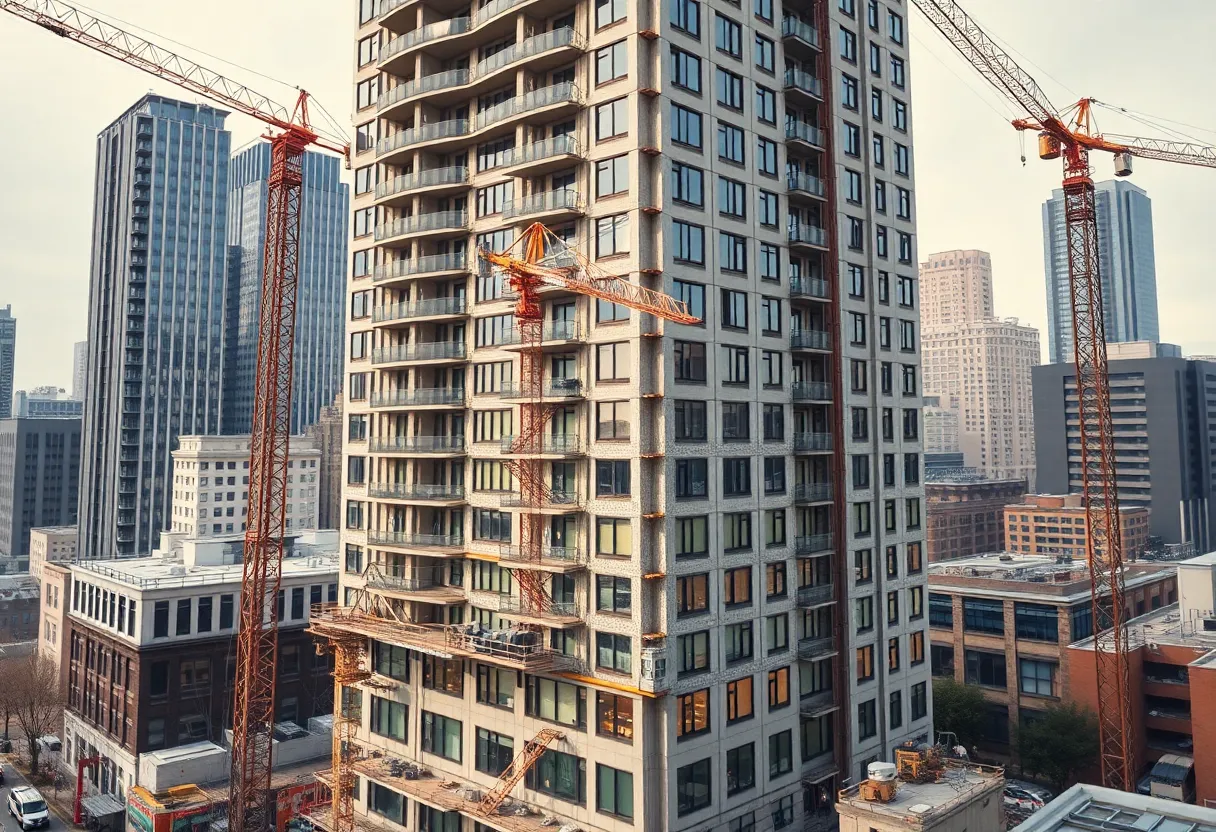News Summary
Boston has approved two major office-to-residential redevelopment projects that will create 155 housing units. Under the Office-to-Residential Conversion Program initiated by Mayor Wu, the projects will transform existing office buildings into affordable housing options amidst rising home prices. The first project will convert a five-story office building into 45 apartments, including seven affordable units, while the second project will change an 11-story building into 110 units, with 22 designated as affordable housing. These initiatives aim to tackle the housing crisis in Boston and support the growing demand for housing.
Boston has approved two significant office-to-residential redevelopment projects that will add a total of 155 new housing units to the city’s portfolio. The decisions, made by the Boston Planning & Development Agency (BPDA), were part of Mayor Wu’s Office-to-Residential Conversion Program, aimed at addressing the increasing demand for housing in a city experiencing sharp rises in home prices.
The first project, located at 123 N Washington Street, involves converting a five-story office building into 45 residential apartments. Of these, seven units will be designated for households earning 60% of the area median income, providing affordable housing options within the city. A restaurant operating on the ground floor of the building will remain in place, ensuring continued commercial activity in the area.
The second redevelopment initiative is situated at 16-18 Hawley Street, also known as the 31 Milk Street project. This project will transform an 11-story office structure in downtown Boston into 110 new housing units. Among these, 22 units will be classified as affordable housing, enhancing the availability of economical living options amidst a competitive real estate market.
These projects are seen as part of a larger strategy to meet the housing goals of the city and to increase the residential population in downtown Boston. The approval of these projects comes at a time when the Massachusetts real estate market is showing signs of increasing pressure, with single-family home sales having risen by 4.2% in February 2025 compared to the same month the previous year.
In February 2025, the median price for single-family homes in Massachusetts reached $575,000, marking a 4.9% increase year-over-year. There were a total of 2,136 single-family home sales recorded during that time, up from 2,050 in February 2024. The real estate market has been characterized by stiff competition, largely due to a persistent lack of housing inventory.
Over the long term, the typical sale price of homes in Massachusetts has risen by an astonishing 73% from 2000 to 2023, when adjusted for inflation. However, the median household income in the state has only grown by 4% in real dollars during the same period, exacerbating the challenge of housing affordability. Currently, the average 30-year fixed mortgage rate stands at 6.65%, slightly lower than the previous year’s rates, providing some relief for potential homebuyers.
The condominium market in Massachusetts is reflecting similar trends to those observed in the single-family home sector. In February 2025, condo sales increased by 2.9%, with a median sale price of $511,000. A total of 2,266 condominium sales were reported during this time, marking a significant 10.5% increase compared to the first two months of 2024.
In response to the ongoing housing crisis, the Massachusetts state government has passed legislation aimed at increasing housing production to address a projected shortage of 220,000 housing units by 2030. This initiative underscores the urgent need for affordable housing options as soaring rents and home prices continue to strain household budgets across the state.
Real estate professionals in Massachusetts express optimism for the upcoming spring market, indicating that they expect prices to continue to rise while improvements in inventory levels may also occur. The combination of state efforts and new redevelopment projects may help alleviate some of the heightened demand for housing in the coming months.
Deeper Dive: News & Info About This Topic
HERE Resources
Significant Real Estate Development Approved in Abington
Transom Real Estate Wins Bid for Medford Square Development
Massachusetts Senate Proposes Tax Suspension for Multihousing Construction
Controversy Over Quincy Parking Garage Earmark
Boston Universities Reassess Developments Amid Funding Cuts
Massachusetts Housing Affordability Crisis Revealed
Massachusetts Golf Courses Shine in National Rankings
Massachusetts Faces Urgent Affordable Housing Crisis
Boston’s Real Estate Trends: A Look at 2025
Boston Celebrates Innovation at MassChallenge Award Ceremony
Additional Resources

Author: STAFF HERE BOSTON WRITER
The BOSTON STAFF WRITER represents the experienced team at HEREBoston.com, your go-to source for actionable local news and information in Boston, Suffolk County, and beyond. Specializing in "news you can use," we cover essential topics like product reviews for personal and business needs, local business directories, politics, real estate trends, neighborhood insights, and state news affecting the area—with deep expertise drawn from years of dedicated reporting and strong community input, including local press releases and business updates. We deliver top reporting on high-value events such as Boston Marathon, Head of the Charles Regatta, and Boston Harborfest. Our coverage extends to key organizations like the Greater Boston Chamber of Commerce and Associated Industries of Massachusetts, plus leading businesses in finance, biotech, and insurance that power the local economy such as Fidelity Investments, Biogen, and Liberty Mutual Insurance. As part of the broader HERE network, we provide comprehensive, credible insights into Massachusetts's dynamic landscape.



